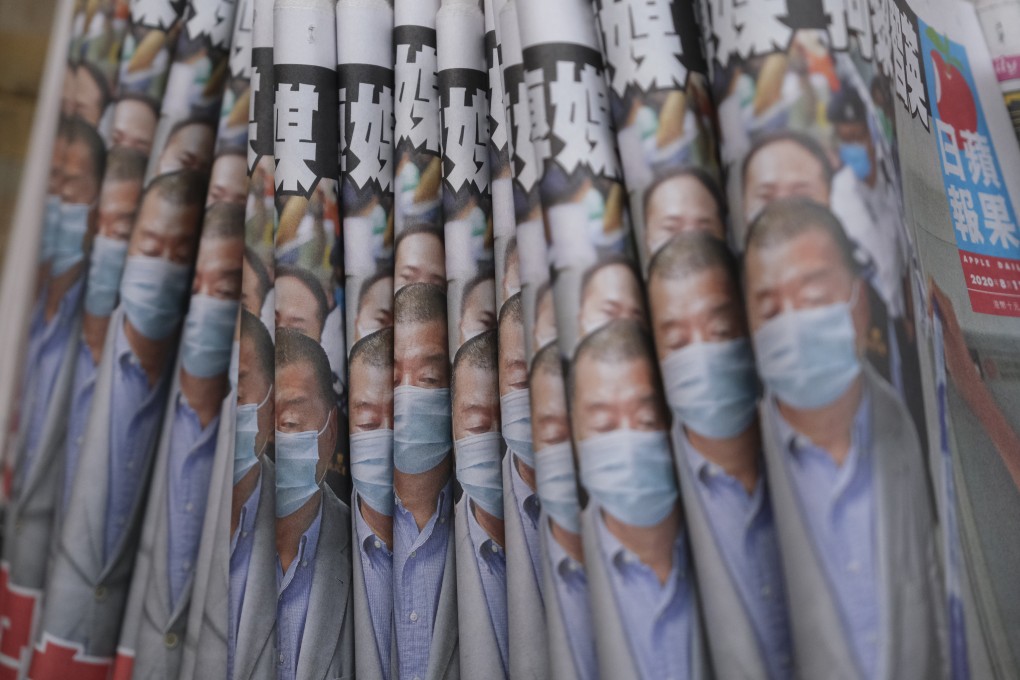Advertisement
Hong Kong police chief wants ‘fake news’ law as he ramps up attacks on newspaper he accused of inciting hatred
- Commissioner of Police Chris Tang escalates attack on local media over coverage of National Security Education Day
- Good to have a law to ‘assist national security and make Hong Kong safer’, Tang says
Reading Time:3 minutes
Why you can trust SCMP
82

Hong Kong’s police chief would back a new law banning fake news and has doubled down on his criticism of a local newspaper which he said “incited hatred” with its coverage of National Security Education Day last week.
Commissioner of Police Chris Tang Ping-keung escalated his attacks against Apple Daily on Tuesday, two days after the tabloid-style newspaper said its reporting of events was based on facts and pointed out a free press was enshrined in the Basic Law, the city’s mini-constitution.
Tang’s accusations stemmed from the newspaper’s front page coverage of last week’s security day, and the Reuters photograph it published of children playing with toy guns. Citing online comments, it likened the scene to an incident in 2019.
Advertisement
On August 31 that year, during the anti-government protests that gripped the city, officers used pepper spray against people in a train carriage at Prince Edward MTR station.

The front page prompted the police chief to warn against the spread of fake news, while over the weekend newspapers supportive of Beijing demanded Apple Daily, which is owned by Next Digital founder Jimmy Lai Chee-ying, be outlawed.
Advertisement
Advertisement
Select Voice
Choose your listening speed
Get through articles 2x faster
1.25x
250 WPM
Slow
Average
Fast
1.25x